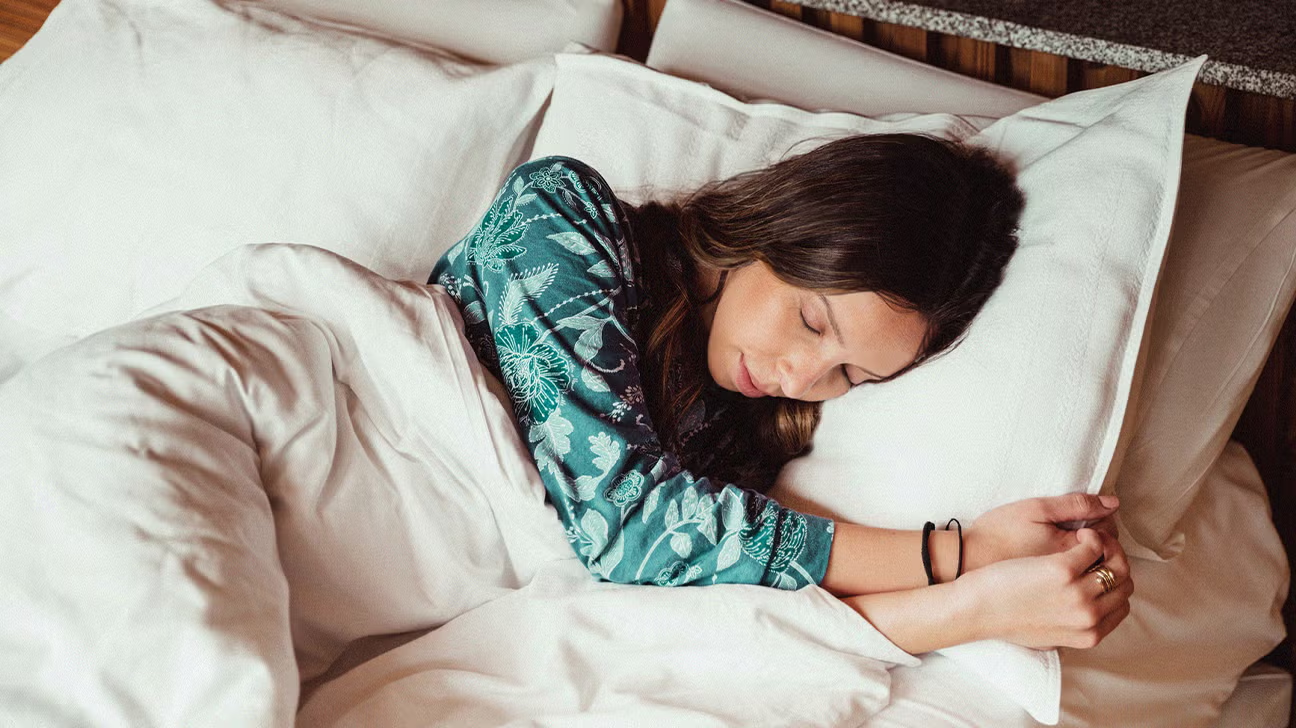Do you have trouble sleeping or feeling tired when you wake up? Support for the spine plays a vital function in achieving a restful and restful sleep.
A healthy spine is not just supportive of good posture but also provides a greater quality of sleep. Find out why the health of your spine is crucial and how the correct support can improve your sleep.
Table of Contents
Why Spinal Health Matters During Sleep
Your spine is much more than a simple bone column. It is the foundation of your body. It also protects your nervous system as well as helps you to keep you in balance and maintain your mobility. Because the health of your spine directly impacts nerve communication and alignment, it is essential to the way the body works, which includes the capacity to heal and rest when you rest.
Uneven spinal alignment in the evening can lead to excessive pressure points, trigger tension in muscles, and cause nerve irritation. Any tension or discomfort that is caused to your back or neck while you sleep could result in twitching and swaying and disrupting the flow of your sleep cycles.
According to experts in sleep health, the ability to achieve deep sleep – the restorative state that lets your body and mind recover and repair – relies in large part on the physical condition. Without proper spinal support, your body is forced to compensate during the night, which prevents you from staying in the restorative phases of sleep.
The Connection Between Poor Spinal Support and Sleep Problems
Incorrect spinal alignment doesn’t only cause physical discomfort, it could have a profound impact on your sleeping patterns. Here’s how spinal misalignment affects the quality of your sleep.
Chronic Pain
Pillows or mattresses that do not properly support your spine could cause chronic discomfort. Neck stiffness, back pain,a nd headaches are typical causes that do not just reduce the length of your sleep, but also impact your mood and productivity.
Disrupted Sleep Cycles
Uneven distribution of weight could result in painful pressure points appearing in the spinal column. When you’re experiencing discomfort, even if you’re not aware of it your body will move around frequently, disrupting the normal cycle of sleep.
Sleep Disorders
Issues with the spine can cause sleep disorders such as insomnia as well as sleep apnea. For example, neck alignment may block airflow, causing conditions such as sleep apnea and snoring.
These elements highlight the importance of preparing your spine to perform well as you rest. This will not only help alleviate physical discomfort but also facilitate more restful, longer, and restful sleep.
How To Support Your Spine for Deep Sleep
Now that we understand how closely health of the spine and sleep quality are linked How can we make sure that our spines are well-supported throughout the night? Start by making sure we have the right sleeping environment.
Invest in the Right Mattress
A mattress of high-end quality is the base of excellent spine support. Find mattresses that are specifically designed to evenly distribute your body weight while maintaining the natural alignment of your spine. Here are some helpful tips to consider when choosing a mattress:
- Medium-Firm support: Studies show that mattresses with a medium firmness, like the twin mattress that is pillowtop are able to strike the perfect equilibrium between comfort and spine support for the majority of people.
- Be aware of your sleep position: Side sleepers should be looking for mattresses that have adequate cushioning for the hips as well as shoulders. On the other hand, back and stomach sleepers could be better off with a slightly firmer option.
- Try Before You Purchase: If possible, take the time to test your mattress to determine the amount of support that feels the best on your own body.
Optimize Your Pillow Setup
The pillow you choose to use is not just for supporting your head, it plays an important role in ensuring that your neck is aligned and your spine is. Here’s how to select the best pillow for you:
- For back sleepers: Opt for a pillow that conforms to the natural neck curve and does not tilt your head to the side.
- For sleepers who are side-sleeping: A firmer, higher-quality pillow can make up the space between your shoulder and ear.
- For stomach sleepers: Use thin pillows or none to ensure that your neck is not strained.
Practice Good Sleep Posture
Your sleeping position has a major impact on the health of your spine. Be aware of these tips to improve your posture for better alignment:
- Side sleeping: Bend your knees slightly, and then place a pillow between them to help keep your pelvis and lower back straight.
- Back sleeping: Put a mattress between your knees in order to lessen the pressure on your back.
- Stomach sleep: Limit this position because it can twist the neck out of place. If you cannot avoid it, consider placing a cushion under your pelvis to give you extra support.
Incorporate a Bedtime Stretching Routine
Stretching your legs before bed could aid in relaxing tight muscles, increasing circulation, and reducing tension in your spine. Simple stretches such as child’s poses, cat-cow stretch, as well as seated forward folds, prepare your body to go to sleep.
Maintain a Healthy Lifestyle
Your sleep habits are just one factor in the overall picture. Maintain the health of your spine as well as overall by engaging in regular exercise, ensuring the right weight, and hydrating to keep discs lubricated.
The Rewards of Prioritizing Spinal Support
If your spine is properly supported through proper alignment and ease throughout the night, you’ll see the benefits all through your day:
- Enhances concentration and cognition by being well-rested
- Lower risk of injury due to strain on joints and muscles.
- Enhances mood and levels of energy, helping you overcome the challenges you face with confidence
Conclusion
If you’re sick of sleepless nights and painfully aching mornings, it could be the right time to review how your spine is supported when you rest. From selecting the best mattress to learning a healthy sleeping posture, even a few adjustments could make a huge impact.

